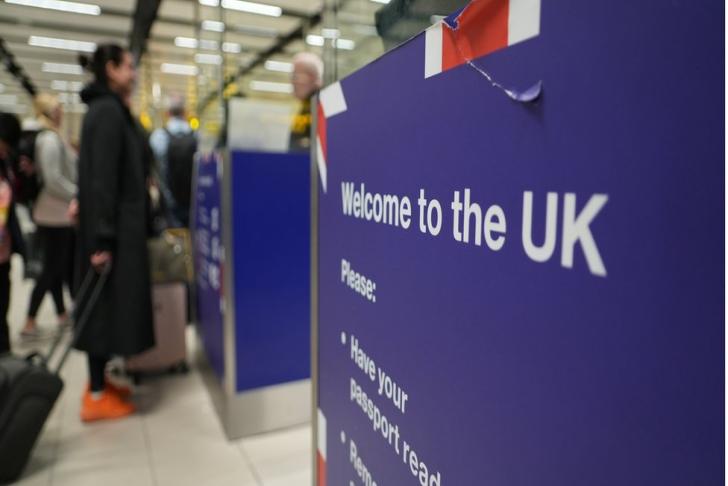On Thursday, the minimum pay needed for employees to bring their spouse to the UK from overseas will increase, despite concerns that some businesses may find the adjustments to be "unfeasible." To "sponsor" a family member to come to Britain, a British citizen must now make at least £29,000 annually, up from £18,600 as of April 11.
Later this year, the barrier is expected to increase once more to £34,500, and in early 2025, it will rise to £38,700. Immigration lawyer Sarah Gogan, Partner at Harbottle & Lewis, said the changes make Britain’s salary requirements for spousal visas “among the harshest in the world” and “risks separating lower-paid British people from their families”. Ms Gogan said new salary requirement is “obscene” and will have a “devastating” impact on thousands of British citizens. It comes as part of a Home Office crackdown on legal migration. Other changes include an increase to the wage required for people arriving in the UK on a Skilled Worker Visa -from £26,200 to £38,700 - on April 4. Reforms that restrict foreign health workers from bringing family to the UK and require care providers to register with the Care Quality Commission (CQC) if they are sponsoring migrants came into force on March 11.
Labour has said it will review the changes if it comes into power after the general election. The government has argued the large increase in salary thresholds is needed to bring down record levels of migration to the UK. But critics say it will mean only the richest 30 per cent of working Britons would be able to bring their partners here from abroad. Think tanks The Entrepreneurs Network and the Startup Coalition have written a joint letter to Home Secretary James Cleverly arguing that the new rules will not be "feasible" for some businesses, particularly tech startups. They have called on the Government to allow company equity, often offered by startups to their first employees, to count towards the salary requirements.
"The ability to meet these new salary requirements may not be feasible for early stage startups, who cannot always pay their workers high wages at the outset," they said in the letter. "Instead, these startups often offer early stage employees equity stakes in their businesses as part of their compensation packages. "This grants them a portion of ownership in the company, entitling them to a share of the company’s value and potential future profits and giving them an incentive to grow the company to its full potential. "However, the new salary requirements will mean many startups who compensate their employees through a mixture of wages and equity shares will be unable to employ foreign workers using the Skilled Worker Visa."
They added that startups which "often compete with larger, more established companies for talent" may miss out on the skills they need, while "established tech giants will be unencumbered by them". "Startups based outside of London, where data shows tech salaries are lower, will be disproportionately impacted by these changes," the letter adds.
Ms Gogan added: “The increase is staggering and will be crushing for those hoping to reunite their families. Imagine having finally secured the childcare and job you need to bring your partner over, only to find the goalposts moved not just marginally, but beyond most people’s earning capacity.
“Many will never apply (particularly after recent fee increases) and either move abroad or endure indefinite separation. Those who can afford to will appeal refusals on human rights grounds. “It is unclear why the UK government believes that spouses are a burden for the UK? Those on a spouse visa already have no recourse to public funds, pay an annual NHS surcharge and have the best possible support – a spouse – when adjusting to life in the UK.”








.svg)
